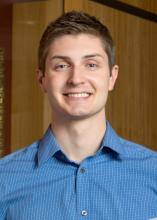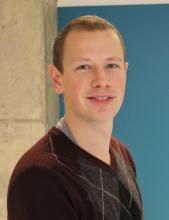By Starla Sampaco | LSJ Communications Assistant
The Law, Societies, and Justice Program seeks to provide a great foundation for students who will eventually pursue careers in law, social justice and government. It is no surprise that several LSJ alumni have relocated to the other Washington -- Washington, D.C.
Four recent alumni from LSJ are busy establishing themselves in D.C.’s active but confusing world of work and public service. They each have numerous suggestions for how future LSJ graduates can emulate them.
One of the four, Bryce McKibben (LSJ and Political Science ‘09), is a policy advisor for the U.S. Senate Committee on Health, Education, Labor and Pensions. As a policy advisor, McKibben works with Sen. Patty Murray, D-WA, and is immersed in higher education policy issues. McKibben first came to D.C. as a Harry S. Truman Scholar. He has a master’s degree in Public Policy, Education and Policy Analysis from the John F. Kennedy School of Government at Harvard University.
Another, Max Burnham (LSJ and Political Science ‘13), moved to D.C. in 2013 to work as a learning and development project leader for City Year. He currently is pursuing a master’s degree in international relations and affairs. Burnham said he chose to attend American University because he could take classes part-time in the evenings. Burnham now works for International Research and Exchanges Board as a program coordinator.
Leslie Berkseth (LSJ and Political Science ‘11) is a second-year student at the Georgetown University Law Center. Last summer, she externed at DV Leap, which is a nonprofit that aims to advance legal protections for domestic violence victims and their children through advocacy at the appellate level.
After graduating from college, Berkseth took four gap years and worked full-time at a law firm before moving to D.C. to attend Georgetown University.
“I knew ever since I was a little girl that I wanted to become an attorney, and LSJ did not change that; however, LSJ exposed me to the divergence between the law in theory and the law in practice and helped me to realize that there are countless ways to use a law degree to make the world a better place,” Berkseth said.
Like Berkseth, Katy Nazaretova (LSJ ‘13) attended Georgetown University. Nazaretova graduated with a master’s degree in Italian Studies in 2015 and is now a staff assistant for U.S. Representative Rick Larsen, D-Wash. Nazaretova started as an intern for Rep. Larsen in August 2015 and was hired for her current position four months later.
All four have plenty of suggestions for how a young person can carve a path in the nation’s capitol.
What to expect
If you are planning to move to Washington, D.C., be prepared for a fast-paced lifestyle.
“The whole city runs on coffee -- even much more so than Seattle,” Nazaretova said.
If you want to make a difference, the nation’s capital is the right place to be.
“It’s definitely a place where you feel constantly plugged into the news and what’s going on in the world around you,” McKibben said. “D.C. is full of idealistic, motivated and highly educated people. Especially in government, these folks subject themselves to long hours and intense work schedules because they want to make a difference.”
Change is constant in the nation’s capital.
“Due to political influx and outflux of administrations, there are many new, young people working here,” Burnham said. “It’s an ephemeral city. You can make good connections and then they leave after a couple years.”
Although there are many pros to living in D.C., Berkseth shared some of her concerns.
“It is expensive here, but considering how much the cost of living has increased in Seattle recently, it seems silly to complain about that,” Berkseth wrote. “Perhaps the thing I dislike most about D.C. is the administration change, given the results of the election. I am nervous about how a Trump administration will affect the people and institutions in D.C.”
Networking
McKibben advises students to network and initiate informational interviews if they want to land jobs in D.C.
“Offer to buy someone coffee and pick their brain about what their job is like,” McKibben said. “Be humble and ask a lot of questions. It is not about focusing on ‘Can you get me a job?’”
Although confidence is important, humility can go a long way.
“Inquisitive, humble people really stand out here,” McKibben said. “Type A personalities are a dime a dozen.”
If you cannot meet with D.C. professionals in person, Burnham encourages students to reach out to organizations they are interested in and schedule phone calls for informational interviews.
Burnham also advises students to sign up for job listing emails on websites like Idealist and Devex to better understand the opportunities in their chosen fields. Of course, internships and service organizations will help early-career professionals grow their networks as well.
“Invest in getting a summer internship if you want to work in D.C., whether it is in government, an NGO or something else,” Nazaretova said. “With networking, someone can put a face to the name. Anyone applying is very well qualified, and it all depends on whether they remember you.”
Nazaretova recommends that students apply for jobs with their representatives, like she did. Nazaretova started as an intern for U.S. Rep. Larson, and since her promotion, she is now in charge of hiring interns for his office.
“A lot of representatives try to get their own constituents in their offices,” Nazaretova said.
However, internships can create financial burdens.
“Internships are good ways to go, but I’m wary about plugging them,” Burnham said. “Often they are unpaid. It can be difficult for many people to stomach an unpaid internship, especially if moving across the country.”
However, public service organizations like AmeriCorps offer stipends to its members.
“If you can get the foot in the door in some way, like City Year, it is good to seize those opportunities,” Burnham said.
Be fearless (and resilient)
You might not get your dream job right out of college, and that’s okay. After completing his year of service at City Year, Burnham applied to dozens of jobs.
“Don’t be discouraged if you don’t hear back about a job application because there are many people applying,” Burnham said.
Berkseth advises students in this situation to consider different fields.
“Many of the people I've met here in D.C. arrived after accepting jobs and internships that weren't exactly what they were looking for, and they were either pleasantly surprised, or discovered another incredible opportunity once they got here,” Berkseth said.
Relocating to an unfamiliar city can be scary, but the risks taken by our alums in D.C. proved to be very rewarding.
“Wherever you want to move, just go ahead and make the leap,” Nazaretova said. “I don’t regret moving here at all. Go for it.”



